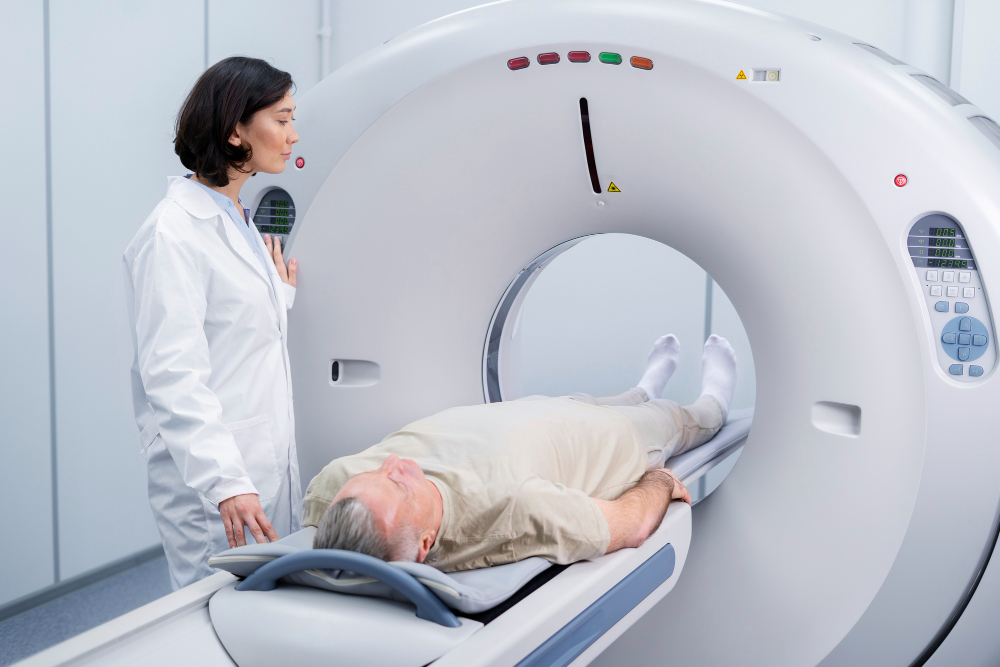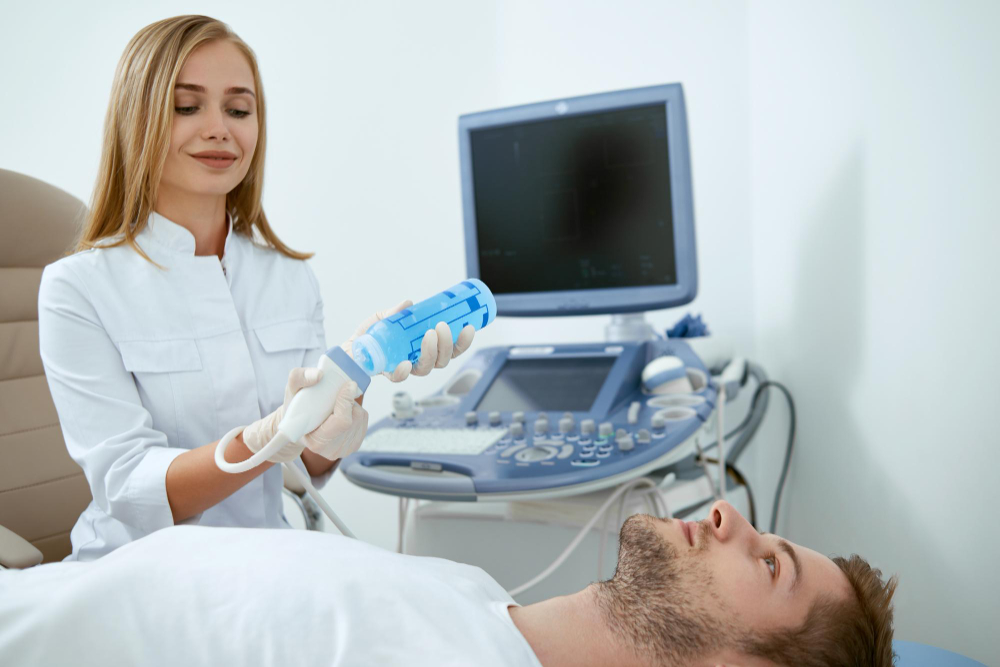Book on Whatsapp
9892101616
Why You Should Consider a Food Allergy Profile in Your Health Checkup
Health Care
Mon Feb 17 2025
Food allergies are very common nowadays, impacting millions of people around the world. Many people experience mild to severe allergic reactions to certain foods without being aware of it. A Food Allergy Profile is a specialized workup that identifies particular food allergens that could be triggering adverse bodily reactions. This test is a part of the overall health check, which helps you make informed dietary changes in the interest of your health.
Understanding Food Allergies
Food allergies arise when the immune system misidentifies a specific food as harmful and triggers the immune system response. From this point onwards, reactions vary in severity, presenting from mild symptoms, such as itching or hives, to severe reactions such as anaphylaxis, which may lead to mortality. The most common food allergens include:
- Dairy products (milk, cheese, yogurt)
- Nuts (peanuts, almonds, walnuts)
- Gluten (wheat, rye, barley)
- Seafood (fish, shellfish)
- Soy and soy-based products
- Eggs
Even the smallest amount of allergen can create problems regarding health to some persons; hence, it stresses the cruciality of early detection.
Benefits of a Food Allergy Profile
Food Allergy Profile may give insights into how your body reacts to different foods. Here are a few reasons why you might want to consider it in your health checkup:
1. Identification of Hidden Allergies :
Many suffer from unexplained symptoms of bloating, rashes, headache, or digestive discomfort unaware these may arise due to food allergies. The Food Allergy Profile settles it by pointing out a specific food trigger, thus really customizing and enhancing the diet..
2. Prevents Severe Reactions
Some food allergies may be severe, causing anaphylaxis and, possibly, death. Identification of allergens before anything is ingested allows one to take precautionary measures, such as avoiding foods or carrying an epinephrine auto-injector if necessary.
3. Improves Digestive Health
Food allergies may lead to chronic digestive sequelae including acid reflux, IBS, and bloating. Successful identification and elimination of allergens from the diet improve gut health and overall digestion.
4. Enhances Skin and Respiratory Health
Many of the food allergies manifest on the skin as eczema, hives, and acne, while others can affect the respiratory tract causing symptoms like wheezing, sinus congestion, and flare-ups of asthma.
A Food Allergy Profile assists you in identifying problem foods so you can eliminate them and improve skin and respiratory health.
5. Supports Weight Management
Food allergies remain quite unidentified and can result in both inflammation and water retention, affecting efforts to manage weight issues. Change in diet with respect to your allergy profile may facilitate the maintenance of the healthy weight.
6. Tailors Your Nutrition Plan
In this light, depending on the types of food to which your system is rendered tolerant, you can then move to develop a precise and suited diet plan. This, in return, establishes a balanced nutritional intake while eliminating the possibility of experiencing allergic reactions.
Testing is usually done using a combination of a blood test, a skin prick test, and an elimination diet:
- A blood test to measure the level of IgE antibodies produced against particular food allergens;
- A skin prick test that detects allergic reactions by applying small amounts of allergens to the skin;
- An elimination diet that identifies potential problem foods by excluding suspected allergens and gradually reintroducing them.
Conclusion
A Food Allergy Profile is an integral part of a comprehensive health examination. It provides great insight regarding one's reaction toward different food, thus preventing such adverse effects: A Food Allergy Profile is an important part of a complete health examination. If you are dealing with unexplained health problems frequently, it will be worthwhile to consider this test for the sake of your health and nutrition.
Related Tests
Related Packages
Related Blogs

Health Care
How to Prepare for an MRI Scan
An MRI Scan can be an intimidating experience, especially if it’s your first time. The machine, strange noises, and medical environment are frequently the cause of questions and concerns. Yet, knowing what to expect before having an MRI scan will help you go through the process much more comfortably, without anxiety, and to a greater degree of effectiveness. Prepared with the right information, you can walk into that appointment feeling confident.
What Is an MRI Scan and Why Preparation Matters
Magnetic Resonance Imaging (MRI) is a noninvasive test that uses powerful magnets and radio waves to make detailed pictures of parts of the body, such as organs, tissues, and structures inside the body. As MRI scans are highly dependent on patient cooperation and safety measures, being prepared can help make the images clearer and the process go smoothly.
Share Your Medical History in Advance
Always tell the medical staff about all health conditions you have before they have an MRI. If you have an implanted medical device — a pacemaker, cochlear implant, metal clips, or artificial joints, for example — let them know. Tiny metal fragments from earlier surgeries or injuries can also disrupt the scan. If you’re pregnant or think there’s a chance you might be, tell the tech in advance so they can take necessary precautions.
Follow Eating and Drinking Instructions Carefully
Fasting is usually not required for an MRI. But if your scan is of the abdomen, or includes contrast material, you may be asked not to eat or drink anything for a few hours beforehand. Always heed directions from your healthcare provider to prevent delays or rescheduling.
Dress Comfortably and Avoid Metal
For your MRI appointment, wear loose, comfortable clothing. Don’t wean her the day of a session, and skip clothing with zippers, buttons, snaps, or metal threads. Jewelry (of all kinds), similar items such as watches, hairpins, belts, and wallets, and even some makeup, can contain metal particles and have to be taken off. Most centers will either have a gown for you to wear during the scan.
Informing the Staff About Claustrophobia or Anxiety
And if you get anxious in tight spaces, don’t keep that to yourself. MRI machines may be small and feel restricted, leading patients to experience claustrophobia. Technicians can provide soothing techniques, music, or light sedation as necessary. Knowing how you feel about it can help them personalize the experience.
Understand the Use of Contrast Dye
An MRI Scan of the brain may need a contrast agent to help make images clearer. If contrast is used in your scan, let the staff know if you have allergies, kidney issues, or a history of previous reactions to contrast dyes. Afterward, drinking plenty of water can help flush the contrast out of your system more quickly.
Stay Still During the Scan
While in the MRI, it is essential to keep perfectly still in order that accurate pictures may be obtained. The machine particularly knocks and taps, which is normal. You may also be given earplugs or headphones to mitigate sound.
How long does an MRI scan take?
The size of the area being scanned will determine how long you spend in the scanner – it can take from 20 minutes to more than an hour.
What to Expect After the MRI
After the scan is complete, you can generally go back to your regular activities right away, unless you’ve been sedated. There is no recovery time for a standard MRI, and the results are usually interpreted by a radiologist before being passed along to your doctor. Getting ready for an MRI Scan Test doesn’t have to induce panic. With clear communication, easy clothing decisions, and a peaceful state of mind, it all just gets simple and becomes clear. Being prepared keeps you safe and provides the most accurate results when opportunities for good health decisions are needed.
Accurate Imaging with Trusted Care at Manipal TRUtest
At Manipal TRUtest, MRI scans are conducted using advanced imaging technology, strict safety protocols, and patient-focused care. From clear pre-scan guidance to accurate reporting, every step is designed to ensure comfort, precision, and confidence in your diagnostic journey.

Health Care
How Early STD Testing Helps Prevent Complications
Sexually transmitted diseases (STDs) are infections passed through sexual contact that can impact reproductive health and overall well-being, often without showing early symptoms. An STD Panel Test provides a comprehensive screening for multiple infections at once, even in the absence of symptoms. Early testing is a proactive medical step that enables timely treatment, helps prevent complications, and supports long-term sexual and reproductive health.
Understanding Silent and Asymptomatic STDs
Symptoms of most STDs are not present or visible immediately. STIs like chlamydia, gonorrhoea syphilis, HIV and hepatitis can all lie dormant (be asymptomatic) for years at a time but yet still have direct contact with other internal organs. In the absence of testing, people may carry without knowing the term of infection, which may lead to complications and spread.
Prevents Disease Progression and Organ Damage
Early STD screening enables you to discover the infection before it gets worse. If not treated, STDs can harm reproductive organs, the nervous system, liver, heart, and immune system. If left untreated, syphilis can attack the brain and heart, while chronic hepatitis could cause cirrhosis of the liver. Early identification dramatically reduces the risk of these dire outcomes.
Protects Reproductive and Maternal Health
STDs are one of the biggest causes behind infertility if left unaddressed. In women, infections can cause pelvic inflammatory disease (PID), ectopic pregnancy, or complications of pregnancy. In men, STDs can harm the health of sperm and reproductive function. Early testing means fertility can be protected and risks reduced during conception and childbirth.
Reduces Community Transmission
Early diagnosis is an important factor in controlling the spread of infection. Those who know their status can take necessary precautions, begin treatment immediately, and notify partners if need be. And this helps to control infections, making possible larger public health efforts.
Improves Treatment Outcomes
Most STDs caught early are much easier to treat. Because it’s usually more effective to treat a pharyngitis infection early, you can usually shorten the duration of treatment while minimizing the chances of developing antibiotic resistance or long-term infection. Late diagnosis could result in complicated and long-term treatment.
Supports Preventive Healthcare Practices
Testing for STDs is part of the routine screening and reinforce the preventive aspect in health care. It encourages routine health checks, responsible sexual behavior, and consultation with a doctor at the first sign of trouble as long-term rather than emergency care.
When STD Testing Is Medically Recommended
- After unprotected sexual contact
- When entering or changing sexual relationships
- If you or your partner have multiple sexual partners
- During pregnancy planning or early pregnancy
- As part of routine preventive health screening
Confidential, Reliable STD Testing with Manipal TRUtest
Choosing an STD Panel Test at the appropriate time can provide clarity and peace of mind while leading to early medical attention that guards against serious complications. When it comes to your sexual health, the earlier you know — and get treatment for — an infection, the better. It also enables people to take charge of their health, make educated choices, and establish safer and more self-assured relationships.
Manipal TRUtest offers comprehensive STD Panel Tests with strict confidentiality, accurate reporting, and convenient home sample collection.

Health Care
When Do Doctors Recommend a Whole Abdomen Ultrasound?
A Whole abdomen ultrasound is one of the most recommended imaging diagnostic techniques to evaluate peritoneal masses, as it is safe, easy to perform, does not require ionizing radiation, and provides valuable information. It produces real-time images of internal organs and doesn’t expose patients to any radiation, making it possible for doctors to assess abdominal health in the absence of X-rays. Doctors order this scan when they require a comprehensive view of several abdominal organs at once, spotting problems early and directing the correct treatment.
Persistent or Unexplained Abdominal Pain
If abdominal pain persists for days or keeps coming back without an obvious cause, doctors often recommend a whole abdomen ultrasound. It can be used to evaluate organs such as the liver, gallbladder, pancreas, kidneys, spleen, and urinary bladder for evidence of inflammation, stones, cysts, or other suspicious features that may cause pain.
Digestive Issues That Don’t Improve
Persistent symptoms such as bloating, nausea, vomiting, indigestion, or changes in bowel habits can indicate an abdominal condition. An ultrasound also lets doctors see the body’s digestive organs, and it can help them rule out gallstones or inflammation of the liver as causes of abdominal pain.
Suspected Liver or Gallbladder Problems
Doctors often advise the test when blood reports suggest abnormal liver function, or when symptoms like jaundice, yellow eyes, and pain in the upper right side of the abdomen occur. Fatty liver, liver enlargement, gallstones, inflammation of the gallbladder, or blockage of bile ducts can be detected by a whole abdomen ultrasound.
Kidney and Urinary Tract Symptoms
Pain in the lower back or sides, difficulty in passing urine, or blood in your urine and frequent urination can be a sign of kidney and urinary tract problems. Ultrasound can also identify kidney stones, infections, cysts, swelling, or bladder problems without the need for radiation.
Unexplained Weight Loss or Loss of Appetite
A rapid weight loss or poor appetite without an apparent reason is what usually sends doctors digging. A full ultrasound scan of the abdomen will reveal any underlying pathologies or hidden conditions forming in abdominal body organs, which would otherwise not become apparent during their early stage.
Evaluation of Abdominal Swelling or Mass
If a doctor feels a lump in the abdomen during an exam, or if there is swelling in the belly (which can be caused by ovarian cancer), an ultrasound is typically the first imaging test recommended. It can indicate if the swelling is due to fluid, an enlarged organ, or a mass that requires further testing.
Monitoring Known Medical Conditions
Ultrasounds may be recommended for patients who have pre-existing conditions, including liver disease, kidney problems, gallstones, or cysts in the abdominal area. This enables doctors to monitor the progression of the disease, evaluate treatment efficacy, and adjust as needed.
During Preventive Health Check-Ups
A whole abdomen ultrasound is advised by many doctors as a regular checkup, especially when you are of an age or have a family history prone to abdominal diseases. Screening for early detection can avoid later complications.
Pregnancy-Related or Gynecological Concerns
Doctors, in some cases, particularly if the symptoms are common to the abdominal and pelvic regions, may recommend an ultrasound of the entire abdomen for a broader, view before suggesting specialized scans.
Trusted Abdominal Imaging with Manipal TRUtest
At Manipal TRUtest, whole abdomen ultrasounds are performed using advanced imaging technology and expert radiology support to ensure accurate results and patient comfort. With a focus on early detection and reliable reporting, Manipal TRUtest helps you take confident steps toward better abdominal health.
